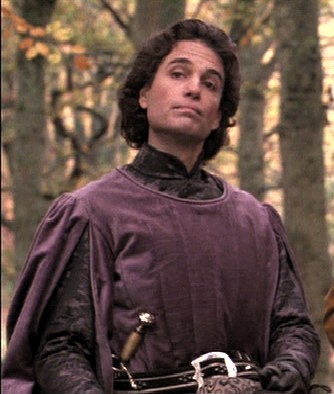This paper also attempts to surface Ignatius’ ideas regarding baptism, Eucharist, martyrdom, and Christology, to the central theme of imitation, or discipleship. Understanding Ignatius’ concept of discipleship helps us understand his other, more misunderstood, ideas. We will understand Ignatius better once we place him within his own context and respect his insights on following Jesus. This paper’s impetus arises from questions any parishoner might ask after reading an Apostolic Father like St. Ignatius.
We will proceed by looking at the language of discipleship with the Ignatian letters. Ignatius’ use of terms and concepts will surface his thoughts, isolating several key areas that Ignatius connected to discipleship. Within each area to which discipleship relates, we will analyze the connection to discipleship from a theological standpoint. Next we will illustrate this link from the letters of Ignatius, noting specifically his use of language. Then from scripture we shall show that Ignatius was not advocating strange ideas foreign to Jesus or the apostles. Here we affirm that Ignatius, the supposed disciple of that ‘beloved disciple’,1 possesses unique insight to speak specifically to the area of discipleship.
Ignatian insight into discipleship can profit the evangelical Church in the twenty-first century. Evangelicals misunderstand Ignatius on many levels. Protestant scholars, in particular, have declared Ignatius defective in his understanding of grace and faith and thus to be an unreliable witness concerning Christian soteriology.2 Since soteriology [doctrine of salvation] impacts Christology, this seems a necessary place to answer the critics. This paper hopes to help Protestants value the writings of Ignatius. From the average Christian to the scholar, Ignatius suffers in our day because we judge him through a two thousand year lens, disregarding the situation in which Ignatius served Christ and his specific circumstance of writing. Martyrdom appears to be Ignatius’ chief chafe for modern readers. A single reading through his letters should raise the question of this death-wish. Some authors have been offended by his passionate desire for martyrdom and the lurid language in which he expressed it.3 This colorful and startling language hides from us his connection of discipleship and death. We must not allow this to occur, for his own words illustrate his emphasis. Moreover, some view the entire early Church era as consumed with an unhealthy desire for martyrdom.4 We tend initially to suppose that his desire for death was selfish, or even an unhealthy mental state. But a careful reading uncovers that he is equally inclined to dwell on the sufferings of Christ5 and the unity of the faith. In fact, that key connection illustrates how he views his own suffering as eucharistic.
Ignatius’ life remains a mystery to scholars. Our knowledge of him unfolds in reverse order from his martyrdom back to his earliest years.6 We can be certain of very little regarding his life. We have scarce information regarding Ignatius’ trial.7 But we do firmly believe that he was a Bishop in Antioch by the end of the first century. Arrested for an unknown charge, perhaps public disturbance [don't mess with Pax Romana] or maybe resisting emperor worship, he died in the Roman circus between 105 to 110 A. D. For sure, we know most about Ignatius from his own writings, which should be read mindful of his circumstances. In other words, all seven letters were written on a journey within a couple of months on the way to be sacrificed by the Roman Empire. Little wonder that following Jesus occupied Ignatius’ mind throughout these letters. And as the letters show, Christ and Paul had much to do with Ignatius’ ideas regarding discipleship.
1 However, most of the references from scripture will point to his Pauline connection.
2 Christine Trevett, “The Much-maligned Ignatius,” The Expository Times 93 (July 1982): p.299.
3 Ibid., p.299.
4 Bruce Tankersley, Class notes of this student in Church History, East Texas Baptist University, Fall 1994. I particularly remember wondering why someone would criticize ancient Christians for wanting to die for Christ when today people are persecuted and martyred continually throughout the world. Not only that, but what purpose does it serve to steer students away from imitating the Lord and His saints?
5 John MacQuarrie, “True life in death,” The Journal of Bible and Religion 31 (June 1964):, p. 200.
6 Even his earliest years can only be upheld by a tradition in the Roman Catholic Church. This tradition holds that Ignatius was the child whom Christ himself embraced while teaching the disciples to accept the kingdom of God like little children in Mark 9:36.
7 A. A. K. Graham, “Their word to our day, IV. Ignatius of Antioch,” The Expository Times 80 (Jan. 1969): p.100.






